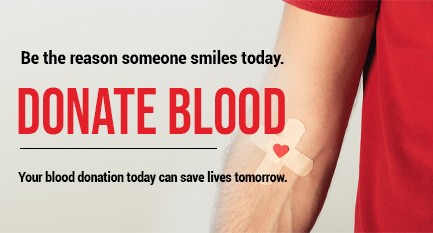

Every two seconds, someone in the India needs blood. This could be a little girl in the ICU or a mother with Stage 3 leukemia. If you’re worried about needles, don’t be—most blood donors compare the experience to a mild, split-second pinch! The entire process is very safe and very fast, and you will feel amazing knowing you potentially saved up to three people. Every drop of blood you donate carries the promise of life to someone in need. Because of your generosity, surgeries are successful, trauma victims recover, and chronic illness patients continue their fight. Your blood donation ensures that life doesn't stop for those facing medical challenges. Step forward, give blood, and become the lifeline that sustains hope and health in our community. Together, we can make a difference, because of you, life goes on.
| Components | A Positive | A Negative | B Positive | B Negative | O Positive | O Negative | AB Positive | AB Negative |
|---|---|---|---|---|---|---|---|---|
| Whole Blood | 0 | 0 | 1 | 0 | 1 | 0 | 1 | 0 |
| PRBC | 13 | 1 | 17 | 0 | 7 | 2 | 11 | 0 |
| Platelets | 5 | 0 | 0 | 0 | 6 | 0 | 1 | 0 |
| Fresh Frozen Plasma (FFP) | 0 | 0 | 0 | 0 | 0 | 0 | 0 | 0 |
The human body contains five liters of blood, which is made of several useful components i.e. Whole blood, Platelet, and Plasma. Each type of component has several medical uses and can be used for different medical treatments. your blood donation determines the best donation for you to make. For plasma and platelet donation you must have donated whole blood in past two years.
Blood Collected straight from the donor after its donation usually separated into red blood cells, platelets, and plasma.
Stomach disease, kidney disease, childbirth, operations, blood loss, trauma, cancer, blood diseases, haemophilia, anemia, heart diseaselasma.
15 minutes to donate.
You need to be 18-65 years old, weigh 45kg or more and be fit and healthy.
Red cells can be stored for 42 days.
The straw-coloured liquid in which red blood cells, white blood cells, and platelets float in.Contains special nutrients which can be used to create 18 different type of medical products to treat many different medical conditions.
Immune system conditions, pregnancy (including anti-D injections), bleeding, shock, burns, muscle and nerve conditions, haemophilia, immunisations.
15 minutes to donate.
You need to be 18-70 (men) or 20-70 (women) years old, weigh 50kg or more and must have given successful whole blood donation in last two years.
Plasma can last up to one year when frozen.
The tiny 'plates' in blood that wedge together to help to clot and reduce bleeding. Always in high demand, Vital for people with low platelet count, like malaria and cancer patients.
Cancer, blood diseases, haemophilia, anaemia, heart disease, stomach disease, kidney disease, childbirth, operations, blood loss, trauma, burns.
45 minutes to donate.
You need to be 18-70 years old (men), weigh 50kg or more and have given a successful plasma donation in the past 12 months
Just five days.